Regenerative Engine Test Set
Categories: Automation TechnologiesDescription: A versatile regenerative engine test set with comprehensive controls and instrumentation. When used with one of optional single-cylinder engines (rated up to 10 kW), it safely and effect...
Product
Description
Description:
A versatile regenerative engine test set with comprehensive controls and instrumentation. When used with one of optional single-cylinder engines (rated up to 10 kW), it safely and effectively enables study and demonstrations of the features and characteristics of the engine. In addition, optional ancillaries are available to extend the range of study, demonstrations and investigations even further. The equipment is fully compatible with Versatile Data Acquisition System. Using enables accurate real-time data capture, monitoring and display, calculation and charting of all relevant parameters on a computer (not supplied) making tests quick and reliable. The main components of the system are: • a heavy fabricated floor-mounting bed • an instrument console with instrument frame • a fuel tank support frame that supports the fuel tank and optional fuel gauge The bed is held on anti-vibration mounts. It includes a robust trunnion-mounted d.c. machine. An electronic load cell connected to the machine measures the driving torque of the test engine. The engines (available separately) are supplied pre-mounted on a sturdy precision base plate. When the engine is initially mounted onto the testbed or exchanged with an alternative engine, dowels and slots locate the engine quickly, accurately and reliably. Each engine includes a colour-coded fuel tank with selfsealing couplings. The couplings ensure the engines can be connected and disconnected quickly and efficiently with minimum loss or spillage of fuel. For convenience and safety, the fuel tank can be removed for filling or for storage in a fuel locker when not in use. Removing the fuel tank also prevents unauthorised use of the equipment. The control console has an electrical cabinet which houses a four-quadrant drive to start and load the engine. The motor can also be used to drive the engine while the fuel and ignition are off, so students can establish frictional losses. The control console includes an air-box and orifice plate to enable students to measure air flow. The instrumentation and display units are mounted on a sturdy frame, which is part of the control console. The control console also includes a convenient work top for use as a writing desk, or for positioning other equipment such as a computer (computer not included). The control console and test bed are separate in order to avoid vibration being transmitted from the engine to the measuring devices. In addition, it allows the instrumentation to be thermally and acoustically screened from the test bed, using suitable shielding or a wall. The engines (available separately) include an exhaust thermocouple, dynamometer coupling, colour-coded fuel tank, hoses and fittings. They also have modified cylinder heads and cranks for connection to Engine Cycle Analyser An Exhaust Gas Calorimeter is also available to enable students to measure energy lost through exhaust gases and to determine the energy balance of the engine.
Learning Outcomes:
Enables a wide range of investigations into the characteristics of four-stroke single-cylinder petrol and Diesel engines
For use with engines up to 10 kW: four-stroke diesel and four-stroke petrol engines
Ideal for group demonstrations and student projects
Includes comprehensive control console and instrumentation
Optional ancillaries available to extend the range of study even further
Quick, convenient and accurate engine mounting and changeover
Test bed includes anti-vibration mounts
Uses four-quadrant drive to start and load the engine, giving excellent stability
Self-sealing couplings enable quick and efficient connection and disconnection of fuel lines with minimum loss or spillage of fuel
Works with Versatile Data Acquisition System.
Specifications:
Atico is committed to a programme of continuous improvement; hence we reserve the right to alter the design and product specification without prior notice.
Instrument Console dimensions:
Width 1700 mm x depth 750 mm x height 1340 mm
Test bed dimension (without engine) :
Width 1150 mm x depth 500 mm x height 800 mm
Weight (packed total):
600 kg
Volume (packed total):
4.25 m3
Dynamometer:
D.C. machine with four-quadrant regenerative drive
Maximum absorption:
10 kW
Maximum speed:
3600 rev.min–1
Speed measurement:
Optical encoder and digital display
Torque measurement:
Strain gauged load cell and digital display
Air consumption measurement:
Airbox and orifice plate, pressure transducer and digital display.
Ambient air temprature and barometric pressure measurement:
Thermocouple, pressure transducer and digital display
Exhaust temperature measurement:
Engine thermocouple and digital display
Fuel consumption:
Precision volumetric fuel gauges (analogue or automatic digital versions available)
Safety features:
Interlocks for mains power failure and engine overspeed
Emergency stops on test bed and console
Operating Conditions
Operating Enviroment:
Laboratory Enviroment
Storage Temprature Range :
–25°C to +55°C (when packed for transport)
Operating Temprature range:
+5°C to +40°C
Operating relative humidity range:
80% at temperatures < 31°C decreasing linearly to 50% at 40°C
quick overview :
Description:
A versatile regenerative engine test set with comprehensive controls and instrumentation. When used with one of optional single-cylinder engines (rated up to 10 kW), it safely and effectively enables study and demonstrations of the features and characteristics of the engine. In addition, optional ancillaries are available to extend the range of study, demonstrations and investigations even further. The equipment is fully compatible with Versatile Data Acquisition System. Using enables accurate real-time data capture, monitoring and display, calculation and charting of all relevant parameters on a computer (not supplied) making tests quick and reliable. The main components of the system are: • a heavy fabricated floor-mounting bed • an instrument console with instrument frame • a fuel tank support frame that supports the fuel tank and optional fuel gauge The bed is held on anti-vibration mounts. It includes a robust trunnion-mounted d.c. machine. An electronic load cell connected to the machine measures the driving torque of the test engine. The engines (available separately) are supplied pre-mounted on a sturdy precision base plate. When the engine is initially mounted onto the testbed or exchanged with an alternative engine, dowels and slots locate the engine quickly, accurately and reliably. Each engine includes a colour-coded fuel tank with selfsealing couplings. The couplings ensure the engines can be connected and disconnected quickly and efficiently with minimum loss or spillage of fuel. For convenience and safety, the fuel tank can be removed for filling or for storage in a fuel locker when not in use. Removing the fuel tank also prevents unauthorised use of the equipment. The control console has an electrical cabinet which houses a four-quadrant drive to start and load the engine. The motor can also be used to drive the engine while the fuel and ignition are off, so students can establish frictional losses. The control console includes an air-box and orifice plate to enable students to measure air flow. The instrumentation and display units are mounted on a sturdy frame, which is part of the control console. The control console also includes a convenient work top for use as a writing desk, or for positioning other equipment such as a computer (computer not included). The control console and test bed are separate in order to avoid vibration being transmitted from the engine to the measuring devices. In addition, it allows the instrumentation to be thermally and acoustically screened from the test bed, using suitable shielding or a wall. The engines (available separately) include an exhaust thermocouple, dynamometer coupling, colour-coded fuel tank, hoses and fittings. They also have modified cylinder heads and cranks for connection to Engine Cycle Analyser An Exhaust Gas Calorimeter is also available to enable students to measure energy lost through exhaust gases and to determine the energy balance of the engine.
Learning Outcomes:
Enables a wide range of investigations into the characteristics of four-stroke single-cylinder petrol and Diesel engines
For use with engines up to 10 kW: four-stroke diesel and four-stroke petrol engines
Ideal for group demonstrations and student projects
Includes comprehensive control console and instrumentation
Optional ancillaries available to extend the range of study even further
Quick, convenient and accurate engine mounting and changeover
Test bed includes anti-vibration mounts
Uses four-quadrant drive to start and load the engine, giving excellent stability
Self-sealing couplings enable quick and efficient connection and disconnection of fuel lines with minimum loss or spillage of fuel
Works with Versatile Data Acquisition System.
Specifications:
Atico is committed to a programme of continuous improvement; hence we reserve the right to alter the design and product specification without prior notice.
Instrument Console dimensions:
Width 1700 mm x depth 750 mm x height 1340 mm
Test bed dimension (without engine) :
Width 1150 mm x depth 500 mm x height 800 mm
Weight (packed total):
600 kg
Volume (packed total):
4.25 m3
Dynamometer:
D.C. machine with four-quadrant regenerative drive
Maximum absorption:
10 kW
Maximum speed:
3600 rev.min–1
Speed measurement:
Optical encoder and digital display
Torque measurement:
Strain gauged load cell and digital display
Air consumption measurement:
Airbox and orifice plate, pressure transducer and digital display.
Ambient air temprature and barometric pressure measurement:
Thermocouple, pressure transducer and digital display
Exhaust temperature measurement:
Engine thermocouple and digital display
Fuel consumption:
Precision volumetric fuel gauges (analogue or automatic digital versions available)
Safety features:
Interlocks for mains power failure and engine overspeed
Emergency stops on test bed and console
Operating Conditions
Operating Enviroment:
Laboratory Enviroment
Storage Temprature Range :
–25°C to +55°C (when packed for transport)
Operating Temprature range:
+5°C to +40°C
Operating relative humidity range:
80% at temperatures < 31°C decreasing linearly to 50% at 40°C
Product
Reviews
add Review
reviews
No Review Yet.
Copyrights © 2025 All Rights Reserved by Atico






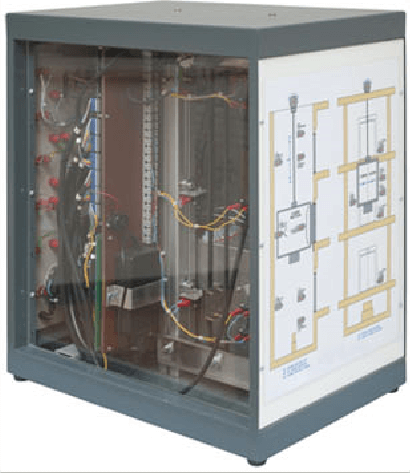
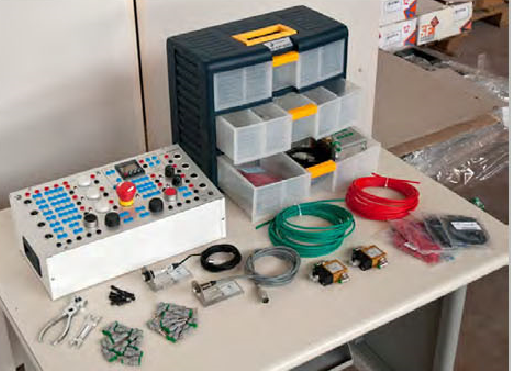
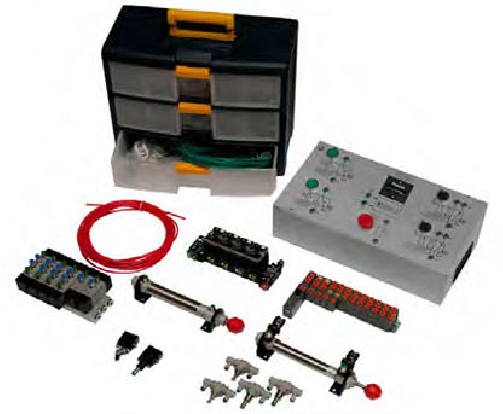
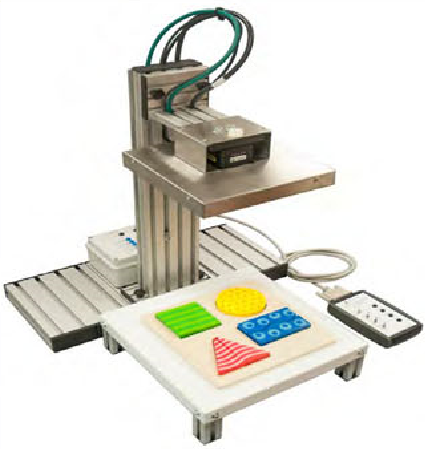
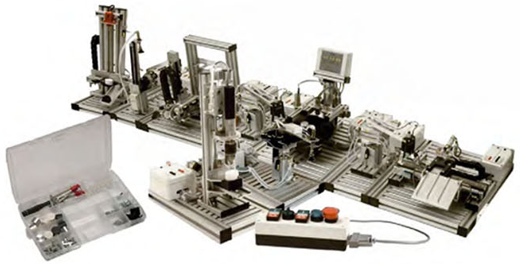
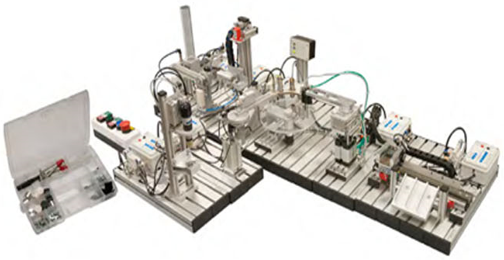
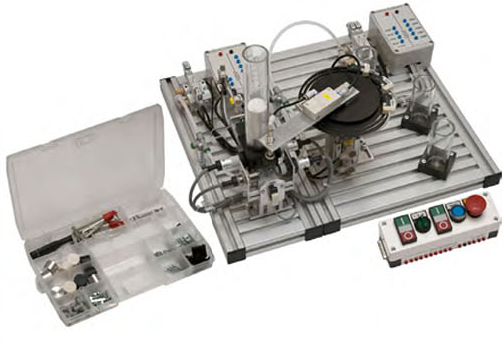
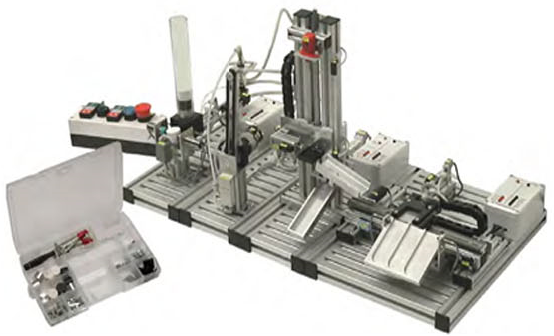
Product
Reviews
add Review
reviews
No Review Yet.